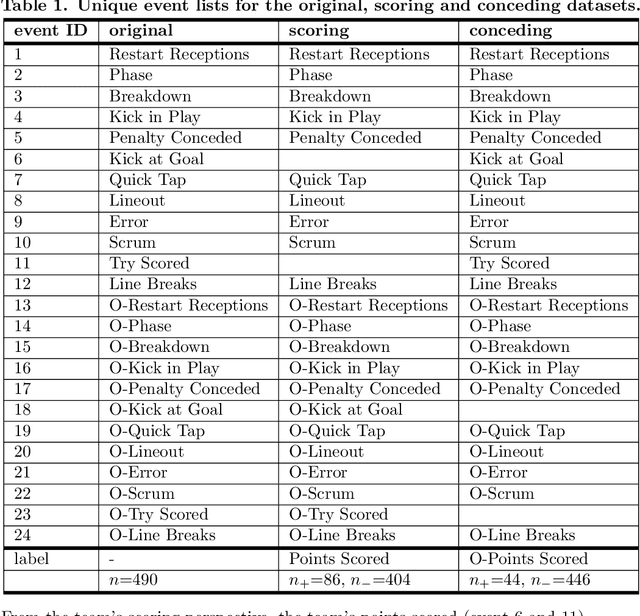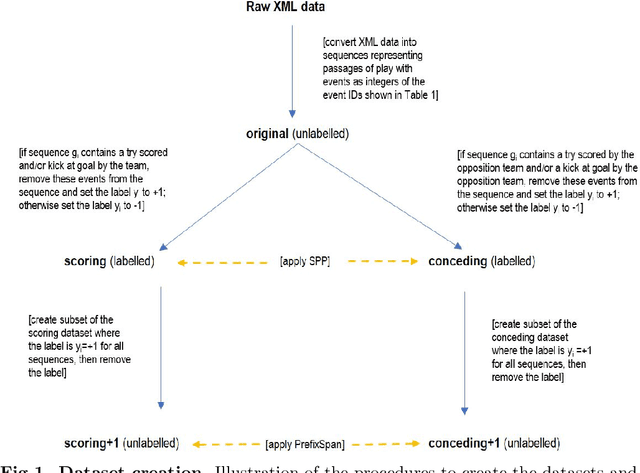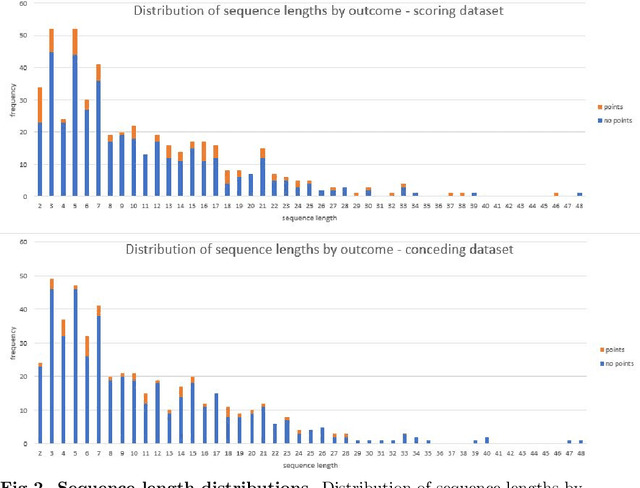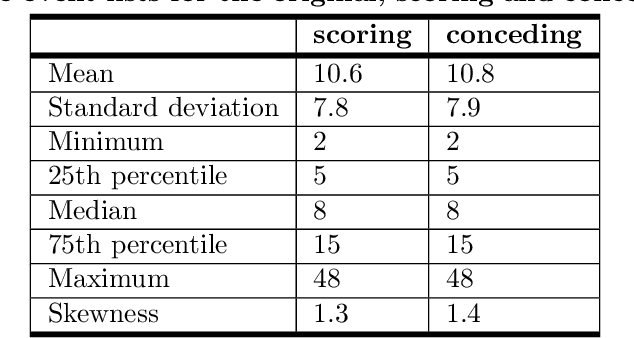Supervised sequential pattern mining of event sequences in sport to identify important patterns of play: an application to rugby union
Paper and Code
Oct 29, 2020



Given a set of sequences comprised of time-ordered events, sequential pattern mining is useful to identify frequent sub-sequences from different sequences or within the same sequence. However, in sport, these techniques cannot determine the importance of particular patterns of play to good or bad outcomes, which is often of greater interest to coaches. In this study, we apply a supervised sequential pattern mining algorithm called safe pattern pruning (SPP) to 490 labelled event sequences representing passages of play from one rugby team's matches from the 2018 Japan Top League, and then evaluate the importance of the obtained sub-sequences to points-scoring outcomes. Linebreaks, successful lineouts, regained kicks in play, repeated phase-breakdown play, and failed opposition exit plays were identified as important patterns of play for the team scoring. When sequences were labelled with points scoring outcomes for the opposition teams, opposition team linebreaks, errors made by the team, opposition team lineouts, and repeated phase-breakdown play by the opposition team were identified as important patterns of play for the opposition team scoring. By virtue of its supervised nature and pruning properties, SPP obtained a greater variety of generally more sophisticated patterns than the well-known unsupervised PrefixSpan algorithm.
 Add to Chrome
Add to Chrome Add to Firefox
Add to Firefox Add to Edge
Add to Edge